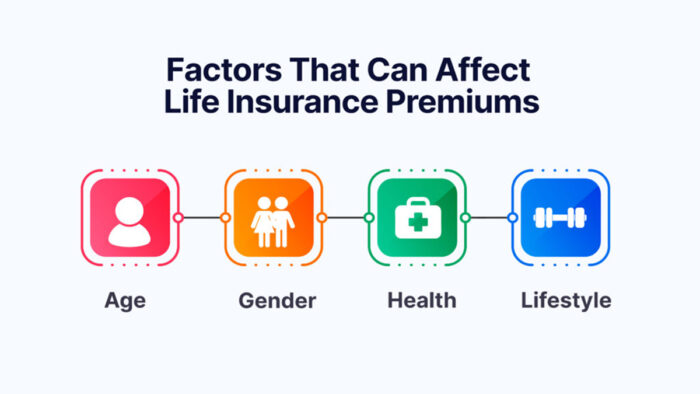Are you aware your health condition can hugely affect your life insurance premiums? Yes, insurance companies look at your health to decide how risky it is to insure you.

For example, if you have a serious condition like cancer or heart disease, you might face higher premiums because there’s a higher chance you could have more health problems.
But if you have existing health issues, there are still options. For instance, guaranteed life insurance is available for people over 50 who might not get coverage elsewhere. These policies usually don’t require medical exams or detailed health questions like standard policies do.
Understanding How Your Health Can Affect Your Life Insurance Premiums
Your health can significantly affect how much you pay for life insurance. Insurers see those with health issues as having higher risks because they might need to pay out benefits sooner.
They gather information about your health through medical exams, your medical records (with your consent), and prescription drug databases.
Health conditions like high blood pressure, high cholesterol, diabetes, sleep apnea, and mental health issues can all impact your rates. Insurers also consider:
- Your medical history, including past and current health problems and treatments
- Your height and weight, which affect your body mass index (BMI)
- Risky habits, such as smoking, drinking, and drug use
- The health history of your family, plus any major illnesses such as cancer or heart disease.
Good health can help lower your premiums without reducing your coverage. By taking care of your health, you can make a big difference in what you pay for life insurance.
Other Factors That May Affect Your Life Insurance Premiums
We are all aware of the fact that your health plays a tangible role in determining how much you pay for life insurance. However, you need to know that there are other factors that may impact the cost of your policy. Here’s a simple breakdown of how different factors affect your life insurance rates:
• Age
Your age affects your life insurance cost. Younger people generally pay less because they’re considered lower risk. Seniors may find fewer options and higher costs for life insurance.
• Gender
Women usually pay less for life insurance than men because they tend to live longer, according to the CDC.
• Smoking
Using any form of nicotine—cigarettes, cigars, smokeless tobacco, vaping, etc.—can push you into higher “smoker” rates. Even occasional marijuana use might affect your rates.
• Family medical history
Your family’s health history matters. A history of serious conditions like cancer or heart disease can lead to higher rates.
• Occupation and hobbies
Jobs with high risks and dangerous hobbies can increase your insurance rates. Activities like scuba diving or skydiving are seen as risky.
• Driving record
Another big factor that can impact your rate is your driving record. A history of traffic violations, especially DUIs or reckless driving, can raise your rates.
• Criminal record
Having a criminal record can affect your ability to get life insurance, especially if you have recent serious convictions.
• Recent financial issues
Just so you know, bad credit and bankruptcies can hugely affect your life insurance rates. Many insurers will look at your financial history to set your rate. If your financial history poses a high risk, your rates will be very high.
• Coverage length and amount
The type and amount of coverage you choose will also have a big impact on your cost. Term life insurance is always very cheap, while whole life and universal life insurance can be very costly. It is always advisable to shop around for a policy and choose the one that matches your needs and budget.
We can’t stress enough how important life insurance is, but there’s another key benefit: it encourages a healthy lifestyle. Just as I have mentioned in this article, your current health has a big impact on your life insurance premiums.
Insurers consider many factors when calculating your premium, but your health is one of the biggest influencers. Understanding the factors written in this post can help you better manage your life insurance costs and find the best policy for your needs.



